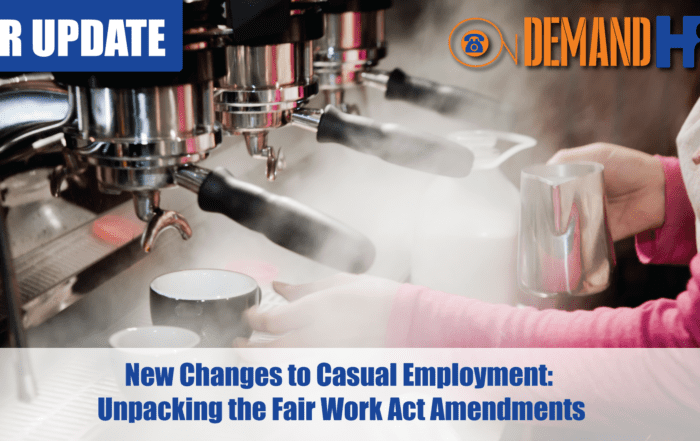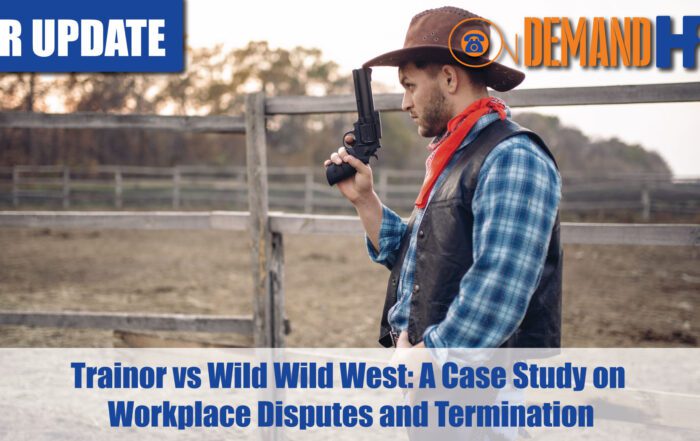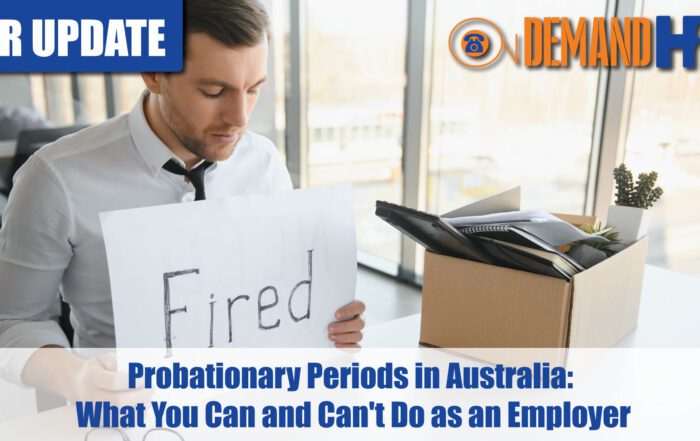NSW Covid Workers Compensation Statistics
We were recently requested to provide a Workplace Relations Update to a group of CPA accountants and one of the topics that were were asked to cover was the impact Covid 19 has had on workers compensation claims. The data that we collected from the State Insurance Regulatory Authority (“SIRA”) provided for some interesting insights and we wanted to share this with our broader audience.
Please see below for a full transcript of this video
Share the HR or workplace relations challenge facing your business and one of our experienced consultants will be in touch within 24 hours with a strategic action plan or discover the best strategy yourself by accessing out free online training library.
Transcript
We were recently requested to provide a Workplace Relations Update to a group of CPA accountants and one of the topics that were were asked to cover was the impact Covid 19 has had on workers compensation claims. The data that we collected from the State Insurance Regulatory Authority (“SIRA”) provided for some interesting insights and we wanted to share this with our broader audience.
So as you can see from the data, there has been a significant explosion in the number of Covid related Workers Compensation claims in NSW since 16 June 2021. This largely can be linked to the Omicron strain. In addition to the wide spread transmission of Omicron, one of the key factors in the high number of claims has been as a result of the combination of the elimination of contract tracing and temporary changes to workers compensation legislation.
We note that many businesses are not overly concerned about an escalation in claims as their mindset is that “that is why I pay for insurance”. We remind you that if your business pays over $30,000 in workers compensation premiums per annum that you are considered to be claims sensitive meaning that you premiums will increase significantly in response to claims made. The true cost to business of this explosion of claims will not be known for a few years.
In May 2020, changes made to Section 19B of the NSW Workers Compensation Act 1987 essentially putting in place a presumption that employees of certain industries contracted Covid at work unless it could be demonstrated otherwise. These industries covered by these changes were very broad and included:
- Retail
- Hospitality
- Construction
- Cleaning
- Health
- Disability & Aged Care
So, with the effective removal of contract tracing as a result of the wide spread nature of Omicron, it is no wonder that we saw an explosion in Workers Compensation claims as there was realistically no objective way to prove that an employee contracted Covid outside of work. We note that at the time of this video, these laws are still in place although their removal is being debated by parliament.
Other observations from this dataset is that approximately 2% of the claims were as a result of adverse reactions from receiving the vaccine. This indicates to us one of the downside risks of implementing a mandatory vaccination policy within the business. It is unclear from the data the number of adverse reaction claims that came from industries mandated by the public health order or businesses choosing to implement a mandatory vaccination policy above and beyond the public health orders but we would expect this to be a combination of both.
The final observation is that approximately 2% of the covid related workers compensation claims also included a mental health component. This significantly impacts the way in which we interpret the statics as the natural thinking would be that despite the high number of claims, the severity or expense of these claims would be limited to typical recovery period for Covid, lets call it two weeks.
However, when it comes to mental health claims we know that the average length of claim is north of 20 weeks which is longer than the typical spinal injury claim. So we must must view this data not only in terms of the number of claims but also their severity and ultimately for claims sensitive businesses the overall cost to the business.
For this reason, we hope that the presumption of contracting Covid at work is removed sooner rather than later.






